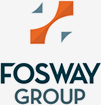
Elearnity research challenges thinking on evaluating learning
eLearnity, Europe’s leading independent Learning Analyst, announced some challenging conclusions from its Learning Scorecard collaborative research project. The project researched best practice in measuring and proving the value of corporate learning with seven major corporate employers and has led to some challenging conclusions regarding current training evaluation practices, and current thinking adopted by corporate training functions.
eLearnity, Europe’s leading independent Learning Analyst, today announced some challenging conclusions from its Learning Scorecard collaborative research project. Conducted during the last quarter of 2003, the Learning Scorecard project researched best practice in measuring and proving the value of corporate learning with seven major corporate employers.
The research has led to some challenging conclusions regarding current training evaluation practices, and regarding the current thinking on evaluation adopted by corporate training functions. Some of the conclusions from the research are that:
1. The need to show real value for learning is now a critical issue for corporate learning & development groups, both to help them properly engage with the business, and to manage their function more effectively and efficiently. For some, the lack of ability to prove value will lead to outsourcing.
2. The extent and usefulness of training evaluation within many companies is currently overstated, tending to focus on satisfaction with training events, the least relevant information for the business.
3. Whilst market statistics, including those from the American Society for Training & Development (ASTD) in the US, might indicate increasing focus on the business impact of training, in reality this is very limited and with no real ability to show the aggregate return from investment in training.
4. Analysis of return on investment for training is done inconsistently, and is largely retrospective and defensive. There are only isolated cases of real predictive analysis of the potential return from future training activities, the most critical aspect in shaping future offerings and value for the business.
5. Current thinking on evaluation is based on outdated or suspect models which lead to poorly aligned evaluation activity from corporate learning & development groups. In particular, we have concerns about the near-universal obsession with the Kirkpatrick four-level model for evaluation, and the treatment of ROI as a fifth level.
“Our research shows that the current thinking and activity for evaluating learning will not deliver the information really needed by the business” said David Wilson, eLearnity’s founder and Managing Director. “We feel there is a strong need to turn current thinking on its’ head, moving away from traditional happy sheet / reactionnaires for training, and instead focusing on measuring the value of learning, aligned with its’ underlying purpose; developing core competencies, meeting learning needs on demand, or in supporting major projects and business initiatives”.
As well as reviewing current and best practices, the eLearnity research has also started to develop new ways of looking at the evaluation problem including a new Learning Evaluation Framework, linked to the Learning Portfolio, a way of structuring and aggregating learning activity. David Wilson will be presenting the initial findings from the research, and associated analysis today at the Learning Technologies conference at Olympia.
An eLearnity Executive Viewpoint paper outlining the research is available from eLearnity on request. Further detailed information including analysis of external best practice and of specific tools and methods will made available to eLearnity’s corporate research subscription clients in February.

